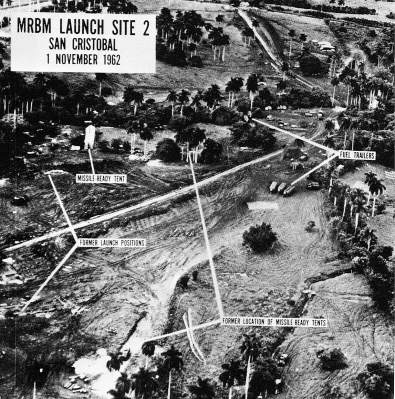History
Timeline of Key Points During the Cold War
FREEZE 1956 - 1962
1959: Cuban revolution -- Cuba taken over by Fidel Castro. US feared the
spread of communism throughout Southern America, they saw this as communism
within the US sphere of influence. Castro also made anti-American speeches.
1960s
1960: John F. Kennedy elected President

President Kennedy
1961: April -- Bay of Pigs invasion. At first the US tried assassination
attempts. These failed so the CIA trained Cuban exiles to try and overthrow
Castro using Guerrilla warfare. They planned an air strike but this was
internationally opposed and cancelled. This doomed the operation. It was
seen as a great humiliation for the US and it contributed to the construction
of the Berlin Wall and placing nuclear warheads in Cuba, USA cancelled
trade with Cuba.
1961: June -- Khrushchev met Kennedy, at the meeting Khrushchev believed
Kennedy was weak and inexperienced. This contributed to the Berlin wall
being constructed and nuclear warheads being sited in Cuba.
1961: Berlin Wall crisis -- The wall was constructed as a result of East
Germans fleeing to West Berlin, the U2 incident where a US spy plane was
shot down and the pilot captured, the Bay of Pigs invasion and JFK being
viewed by the USSR as weak. This was seen by many as Soviet oppression,
USSR called it an Anti-Fascist Defence Wall. The wall resulted in major
tension between the USA and USSR. As the wall was being constructed Western
troops were put on alert, there was a showdown at checkpoint Charlie.
Many viewed this as the beginning of a possible WWIII. Confutation was
avoided but resulted in Kennedy increasing military spending.
1962: Cuban missile crisis - The US discovered the USSR had sited nuclear
warheads in Cuba. Why? The US had missiles in Turkey and Khrushchev’s
low opinion of Kennedy meant he felt he could bully him. JFK ordered the
blockade of Cuba, Khrushchev sent a message which said that if the US
promised not to attack Cuba and the blockade was lifted they would remove
Soviet missiles. The following day Khrushchev sent a tougher message,
in which he demanded the removal of US missiles from Turkey. Kennedy agreed
to the second message, USSR agreed to remove missiles if the US removed
missiles from Turkey. Crisis over. Resulted in a Hotlink being set-up
to improve communications. The Test Ban treaty was also passed and Détente
resulted in 1969. The events after 1963 carried less of a risk of nuclear
war, this could be seen as a turning point in the war.

Missile sites in Cuba
Reference Tools
Dictionary
Thesaurus
Maps
Scientific Calculator
Periodic Table
Translator
Unit Conversion
Divided Union
Introduction
Post War
The ‘Red Scare’
Civil Rights Movement
Non-Violent Direct Action
John F Kennedy
Lyndon Johnson
Growth of Black Power
The Woman’s Movement
The Student Movement
Nixon and Watergate
Cold War
Period 1945 - 1962
Period 1956 - 1962
Period 1962-1969
Period 1969 -1979
Period 1979 - 1985
Period 1985- 1991
